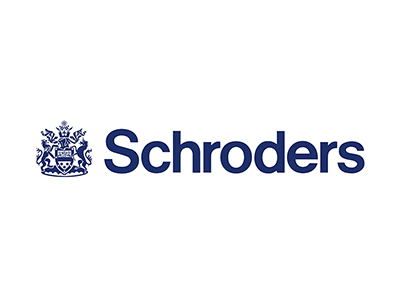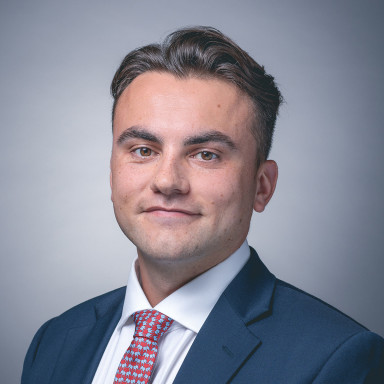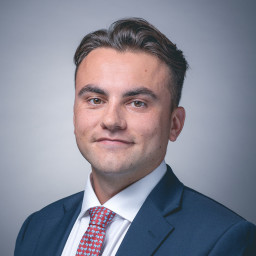This trust provides exposure to some of the most exciting companies in Asia
Richard Sennitt has plenty of experience having managed Asian funds since 2001
Schroders have a well-resourced team of analysts based across the region
How it fits in a portfolio
The Schroder Asia Pacific Fund seeks to grow capital over the long term by investing primarily in larger Asian companies from countries such as India, Taiwan, China and Hong Kong.
This trust could form the Asian portion of a globally diversified portfolio. Investments in emerging markets add risk and the associated volatility should be considered when constructing a long-term portfolio.
Investors in closed-ended funds should be aware the trust can trade at a discount or premium to the net asset value (NAV).
Manager
Richard Sennitt has been lead manager of the trust since March 2021 following the retirement of veteran investor and long-term colleague, Matthew Dobbs. Sennit joined Schroders in 1993 and has a wealth of experience investing in Asian markets having managed the Schroder Asian Income Fund since 2001, as well as a few other Asian income portfolios that are run similarly.
Abbas Barkhordar also became co-manager in 2021 when Dobbs retired. He joined Schroders in 2007, initially as an analyst on the Emerging Markets Equities team. While he has applicable analyst experience, this is one of Barkhordar's first trust manager roles.
Both managers are also responsible for the open-ended Schroder Asian Alpha Plus fund which invests in a near identical way. Given the overlap in process and investable universe, we think they can comfortably handle their workload.
There are thousands of companies in this part of the market, so the managers have the help of a team of around 40 analysts based across Asia. They help sift through the market and uncover what they believe to be the most promising opportunities.
Process
Sennitt and Barkhordar believe that Asian markets are a stock pickers paradise. Since they tend to be less researched than developed markets there is plenty of opportunity to uncover hidden gems. They tend to be volatile though and that’s why the managers believe the best way to navigate these risks is by investing in high-quality businesses – but without paying too much for them.
To whittle down a universe of over 5,000 companies the managers work closely with Schroders’ Asian equities team to help generate research and ideas for the fund. They look for companies they think can sustain returns over the long run. They should have good cash flows, strong franchises, a quality management team, superior corporate governance standards and a strong business model that's able to defend against competition. Next, they aim to forecast the earnings of each business, which could ultimately influence the direction of the share price.
While the managers mainly focus on individual company analysis, they also consider economic factors to provide broader context to their research. This may involve looking at inflationary trends and monetary policy, amongst other factors.
This results in a portfolio of around 60 companies. Over half of the portfolio is invested in financials and technology stocks with significant investments in TSMC and Samsung Electronics.
Geographically, at the end of 2023, the managers invested 16.6% in China, which is a lot less than the benchmark (30.8%). In contrast, they invest more in Hong Kong where they have found good quality ideas at more sensible valuations. India and Taiwan also form a meaningful part of the trust’s regional spread.
Over the trust’s latest financial year (end of September 2023) the managers used share price weakness to top up investments in China and Hong Kong at more attractive prices. This included sporting apparel manufacturer Shenzhou and internet platform Tencent. They also added manufacturer Shenzhen Inovance and Wuxi Biologics to the portfolio.
In contrast, they sold Taiwanese chip designer, Novatek Microelectronics and reduced investments in other technology companies that had performed well such as Samsung Electronics, TSMC and Delta Electronics. India’s stock market has been a strong performer recently which has seen certain parts of the market becoming expensive. As a result, the managers used this as an opportunity to take profits from several holdings such as automaker Maruti Suzuki and logistics firm Container Corporation of India.
The trust uses gearing (borrowing to invest), which can improve gains but also magnify losses in a falling market and therefore increases risk. At the end of the trust's last financial year in September 2023, gearing stood at 2.1%, up from 0.2% the year before. They also have the flexibility to use derivatives, which if used, adds risk.
Culture
Schroders is a well-established asset manager with offices all over the world. It believes the importance of Asian and emerging markets in the global economy has increased significantly over the years and expects this to continue. We think Schroders is dedicated to investing in this part of the world and supporting the teams that invest there.
We believe incentivisation for Schroders fund managers and analysts is focused on longer-term performance potential and is therefore aligned with their investors. The Asian equities team is based across the UK and Asia, and this remains an important resource for the group’s range of Asian funds.
ESG Integration
Schroders has invested significantly in environmental, social and governance resources (ESG) and tools in recent years. Each investment desk has access to a variety of data sources that have been brought together into a proprietary platform called SustainEx, which allows investment teams to quantify a company’s positive and negative contributions to society. The ESG agenda at Schroders has significant support from senior management, and in 2019, the firm completed its acquisition of impact investment specialist Blue Orchard.
All Schroders funds were required to pass the firm’s inhouse ESG accreditation process by the end of 2020. All new funds must also be ESG accredited, and investment teams must reapply for accreditation on an ongoing basis. The ESG accreditation process is managed by the Sustainability team. They sit on the investment desk and are objective in their approach. There is a set list of criteria that funds must meet to become accredited, and the process is substantial – no fund has ever gained accreditation on the first attempt. Fund managers are also expected to demonstrate improved levels of ESG integration over time.
The Schroders Sustainability team acts as a focal point for ESG, proxy voting, and engagement. When it comes to proxy voting, Schroders has structured policies in place and is transparent on the reasons proposals have been voted against. On the ESG engagement side, the firm’s activities and outcomes are monitored, tracked and reported in their quarterly Sustainable Investment reports and annual Sustainability reports. There are also a range of ESG-related insight and thought leadership articles available on the firm’s website.
Cost
The trust’s annual ongoing charge to the end of September 2023 was 0.86%. Investors should refer to the latest annual reports and accounts and Key Information Document for details of the risks and charging structure.
If held in a SIPP or ISA, the HL platform fee of 0.45% (capped at £200 for a SIPP and £45 for an ISA) per annum also applies. Our platform fee doesn’t apply if held in a Fund and Share Account or Junior ISA. As investment trusts trade like shares, both a buy and sell instruction will be subject to the HL share dealing charges.
Performance
Richard Sennitt has an extensive track record investing in Asia. He has managed the Schroder Asian Income Fund since 2001 – which is different from this trust as it aims for income and growth. A similar process is used to find investment opportunities though and the universe of companies being researched is similar. As always, past performance is not a guide to future returns.
Over the long-term investors have seen strong relative returns. However, most of this performance can’t be attributed to the current management duo. Following their appointment in March 2021, the trust’s share price has returned -17.06%*, underperforming the MSCI AC Asia ex Japan index return of -14.52%. The trust’s net asset value (NAV) fell by -13.69% which is a fairer reflection of investment performance.
Over the trust’s latest financial year (to end of September 2023), the share price rose 2.28% versus 1.41% for the benchmark, respectively. It’s NAV increased by 2.87% over the same period.
The Chinese stock market continued to face ongoing pressure due to weakness in the wider economy clouding investor sentiment. Having less invested here over the year helped relative performance alongside some good stock picking with holdings such as Ping An Insurance and fast-food operator Yum China benefiting from reduced COVID-19 restrictions. Developments in artificial intelligence (AI) over the year was also supportive for several of their Taiwanese technology investments.
In contrast, the trust’s investments in financials – a sector they have more exposure to than the benchmark – was a drag on performance. Some of the largest detractors included Hong Kong Insurance companies AIA and Prudential, and private Indian Banks ICICI and HDFC.
At the time of writing, the trust trades at a discount of 10.70% which compares to an average discount of 11.14% over the last 12 months. The trust has a dividend yield of 2.58%, although yields are not guaranteed and therefore are not a reliable indicator of future income.
Annual percentage growth
Dec 18 – Dec 19 | Dec 19 – Dec 20 | Dec 20 – Dec 21 | Dec 21 – Dec 22 | Dec 22 – Dec 23 | |
|---|---|---|---|---|---|
20.23% | 34.66% | -2.31% | -13.06% | 0.20% | |
MSCI AC Asia ex Japan NR | 13.61% | 21.16% | -3.84%% | -9.55% | 0% |


